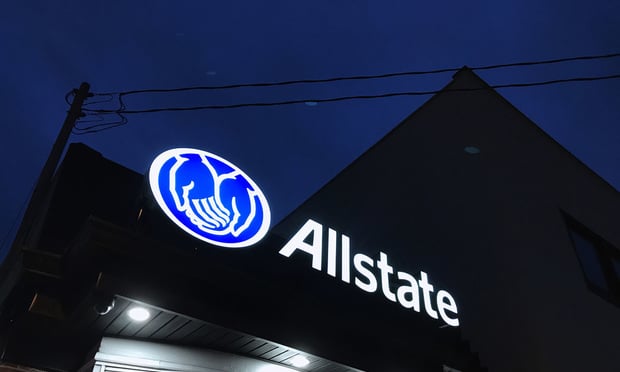NU Online News Service, Feb. 23, 3:10 p.m. EST
While in support of a broad property insurance reform measure in Florida that addresses sinkholes, the industry continues to have concerns.
Additionally, some of the bill's critics claim it will give insurers a way out of offering sinkhole coverage at all.
"It allows carriers to choose whether to offer coverage, and I don't think any reasonable person can disagree with what insurers will do," said David Beasley, president of the Florida Association of Public Insurance Adjusters (FAPIA). "They'll disappear."
SB 408 looks to make vast changes to sinkhole coverage. The bill removes the requirement that a property insurer must offer sinkhole coverage, revises what constitutes a sinkhole loss, and revises procedures for insurers and policyholders relating to standards for sinkhole insurance claim investigations.
The legislation made it out of the Senate Banking and Insurance Committee on Feb. 22 by a 7-3 vote.
The bill does not stop at sinkholes. It also tackles many of the same issues addressed in SB 2044, which was widely supported in 2010 but was vetoed by then-Gov. Charlie Crist.
Yet sinkhole reform, which was left off of the property insurance reform package last year, has gained the most attention. Sinkhole claims have become a huge problem for property insurers in Florida, supported by studies by the Office of Insurance Regulation (OIR) and the Senate Banking and Insurance Committee.
"If nothing is done about sinkholes, there is a good chance of wrecking what is left of the property insurance market in Florida, even without hurricanes," said William Stander, assistant vice president and regional manager for the Property Casualty Insurers Association of America.
SB 408 remains a work in progress. Insurance trade associations will look to address a hole in the legislation. The measure is for the future and doesn't take care of the sinkhole claims already in the pipeline. It also doesn't prevent homeowners from filing a claim in the future for sinkhole damage they will say happened before SB 408 was enacted, if it is enacted.
Mr. Stander said insurers are already reporting an increase in sinkhole claims as SB 408 goes through the legislative process.
"[Insurers] are seeing the handwriting on the wall," Mr. Stander said. "It's getting worse as we speak. And we can do nothing about claims that are currently filed. We're looking into how best to deal with that."
The "sinkhole liability tail" could mean some insurance companies will go into receivership regardless of whether SB 408 is signed into law, according to Monte Stevens, legislative affairs coordinator for the OIR.
Testifying earlier this month before a state House insurance committee, Mr. Stevens said an influx of claims based on the old law will force a handful of companies into receivership.
"This bill is not finished," said Samuel Miller, executive vice president of the Florida Insurance Council. "We managed to keep it together as it is, but there are some other issues, particularly with the 'tail.'"
Related: More Sinkhole News & Analysis
Insurers will still be required to provide coverage for "catastrophic ground cover collapse," or for when a home is swallowed by a sinkhole. That is only a very small percentage of claims. Homeowners with claims based on cracks from shifting and settling caused by sinkholes will not be covered.
Mr. Miller said coverage for legitimate, less severe damage caused by sinkholes will come.
"There has to be something in between," he said. "I think they'll come up with something in the middle that will allow insurers to cover this."
Right now, homeowners with legitimate sinkhole claims will suffer due to abuse of the current law, which is largely blamed for the rapid spike in claims. Mr. Beasley of the FAPIA said adjusters don't have anything to do with that. Most times they are not involved with sinkhole claims, he said.
FAPIA worked with lawmakers to construct other provisions in the bill that specifically address and improve the ethical standards of public adjusters, but the group is not happy with other language it says will hurt consumers.
"Removing coverage isn't going to solve the problem; it will make things worse in Florida," he said. "Mortgage lenders require sinkhole coverage, and if it is not available, forced-placed insurance is the only option."
The bill will have the unintended consequence of affecting property values and home sales, Mr. Beasley added.
"Changes need to be made if you're going to be reasonable," he said. "Right now this is just good for the insurance companies."
Want to continue reading?
Become a Free PropertyCasualty360 Digital Reader
Your access to unlimited PropertyCasualty360 content isn’t changing.
Once you are an ALM digital member, you’ll receive:
- Breaking insurance news and analysis, on-site and via our newsletters and custom alerts
- Weekly Insurance Speak podcast featuring exclusive interviews with industry leaders
- Educational webcasts, white papers, and ebooks from industry thought leaders
- Critical converage of the employee benefits and financial advisory markets on our other ALM sites, BenefitsPRO and ThinkAdvisor
Already have an account? Sign In Now
© 2025 ALM Global, LLC, All Rights Reserved. Request academic re-use from www.copyright.com. All other uses, submit a request to [email protected]. For more information visit Asset & Logo Licensing.








